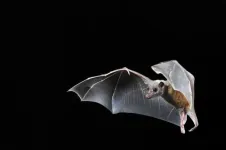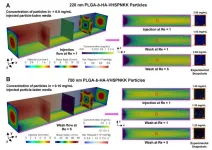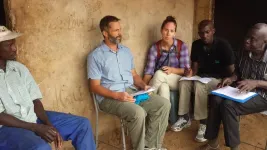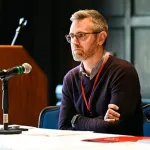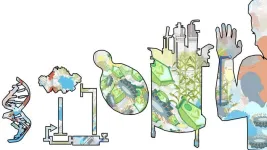(Press-News.org) Children conceived by using egg or sperm donors have the same well-being outcomes as non-donor conceived people.
However, they are more likely to have identity difficulties and issues with trust. Secrecy and anonymity about their genetic parentage can have a profound impact on well-being say authors. They warn that children and adults conceived using donor gametes have not been centred in the assisted reproductive industry and more information is needed about adult wellbeing.
The study is published today in the British Journal of Obstetrics and Gynaecology by researchers King’s College London. The study is the first systematic review of studies investigating the psychological experiences of donor conceived people through childhood and adulthood and is the largest body of evidence for this group.
More than 70,000 donor conceived people have been born in the UK since 1991 when records began, and a significant unknown number before this date, however little is known about their long-term psychological outcomes.
The review looked at 50 studies and 4,666 donor conceived children and adults, mostly from high-income Anglophone countries, and found most studies showed equivalent or better outcomes in donor conceived people including higher wellbeing scores, self-esteem and relationship warmth.
The findings also showed children fared better when they were told they were donor conceived early. In the UK, donor anonymity has been against the law for those conceived after 2005 but children must wait until they are 18 years old to access information.
However, there is no legal requirement for families to tell their children the truth about their genetic lineage. The proliferation of at-home commercial DNA testing can reveal family secrets and yield life-changing results. It is often adults, who were conceived before 2005 and have no legal right to information about their genetic identity, who have been left out of the research and been left behind by the fertility industry.
First author Dr Charlotte Talbot, who graduated from King’s College London and is an Academic Foundation Doctor, affiliated with the University of Birmingham, said: “This is the largest body of evidence we have for wellbeing for donor conceived children and adults but it’s a complicated picture. While most outcomes are the same or better for this group than non-donor conceived people, qualitative studies revealed common themes relating to mistrust and concerns about genetic heritage.”
Senior author Professor Susan Bewley from King’s College London said: “Donor conceived children are always planned for and wanted, as one or more of their parents would have had fertility issues. This might explain better relationships with their family and higher wellbeing. However, much of the conversation around innovation in the assisted reproductive industry concentrates on the customers and potential parents rather than the people they want to create. We need to be better about putting donor conceived offspring’s needs and priorities at the centre.”
Laura Bridgens, Founder of Donor Conceived UK (DCUK), said: “The use of a gamete donor for conception is a life-long intergenerational process with far reaching social implications. DCUK welcomes this systematic review as it highlights the necessity for further consideration for the long-term needs and outcomes of donor conceived people into adulthood. There is a duty of care by the government and the fertility industry to listen to the voices of adult donor conceived people to create a future in which charity sector intervention is not needed to repair the mistakes of the past.”
The paper, Comparing the psychological outcomes of donor and non-donor conceived people: A systematic review, can be read in the British Journal of Obstetrics and Gynaecology.
END
Adults conceived by donors left behind by fertility industry
2024-06-28
ELSE PRESS RELEASES FROM THIS DATE:
Novel method optimizes extraction of antioxidant and colorant from jabuticaba peel
2024-06-28
Scientists at the State University of Campinas (UNICAMP) in Brazil and the University of Cadiz (UCA) in Spain have successfully deployed a novel method of extracting high-value-added chemical compounds from the peel of jabuticaba (Plinia cauliflora). The method, which simplifies the process and enhances its efficiency, is described in an article published in Journal of Food Composition and Analysis.
The aim was to optimize extraction of anthocyanin, a potent antioxidant found in strawberries, blackberries and raspberries as well as jabuticabas, among other sources. It has anti-inflammatory effects and is also a natural ...
Researchers discover how nerve cells in bat brains respond to their environment and social interactions with other bats
2024-06-28
Vienna, Austria: Researchers have found that nerve cells in the hippocampus region of the brain encode complex information on numerous characteristics of other individuals in the same social group.
The work, which is being carried out in bats, is the first to show this in a large, mixed-sex group of wild, social animals, and is important because it sheds light on how the brain operates and generates thinking processes and behaviour.
Professor Nachum Ulanovsky, Head of the Center for Learning, Memory and Cognition at the Weizmann Institute of Science, ...
Simulating blood flow dynamics for improved nanoparticle drug delivery
2024-06-27
Despite gaining a bad rap in mainstream media in recent years, nanoparticles have been successfully used for decades in targeted drug delivery systems. Drug molecules can be encapsulated within biodegradable nanoparticles to be delivered to specific cells or diseased tissues. However, blood flow dynamics can significantly affect the nanoparticle’s ability to bind at the target site and stay adhered long enough for the drug to be released.
Drawing inspiration from civil, mechanical, electrical and chemical engineering, University of Illinois Urbana-Champaign professors Arif Masud and Hyunjoon Kong have developed and tested a new mathematical model to accurately simulate ...
Research and efforts to combat schistosomiasis earn geographer David López-Carr several high-profile awards
2024-06-27
(Santa Barbara, Calif.) — What if you could take an ecologically degraded environment that presents a public health problem, and devise a powerful and elegant solution that not only restores its functionality but also reduces its health impacts while addressing food and water access and alleviating poverty? An international team of biologists, social scientists and medical researchers in the U.S. and Senegal did just that, and for their innovation and research, published in the journal Nature, has received several prestigious awards.
“It feels gratifying to be recognized for work finding win-win solutions for the environment and people,” said UC Santa ...
US states shape foreign policy amid national China unease, research shows
2024-06-27
State-level officials such as governors, state legislators and attorneys general are shaping U.S.-China relations as the two countries navigate a strained geopolitical relationship, according to new research by political scientist Kyle Jaros.
“The state level has independent importance in the U.S.-China relationship — it’s not just a reflection of what’s happening at the national level,” said Jaros, associate professor of global affairs in the Keough School of Global Affairs at the University of Notre Dame. “The actions taken by state and local officials — and their Chinese counterparts — not only affect their own communities, ...
Midwest Center for AIDS Research to help end regional HIV epidemic
2024-06-27
Since the peak of the AIDS epidemic, the U.S. has achieved significant advancements in preventing and treating HIV, though progress has been uneven across regions and slower than necessary. In Missouri, where the number of new HIV diagnoses and deaths has not improved since 2017, there is a need to recapture momentum in addressing the disease.
In a bid to jump-start the stalled campaign against HIV in the region, researchers at Washington University School of Medicine in St. Louis and Saint Louis University plan to establish the Midwest Developmental Center for AIDS Research with funding from the National ...
WIC enrollment reduces poor pregnancy outcomes for parents and babies, study finds
2024-06-27
More than one in 10 households in the United States last year did not have access to adequate and nutritious food, according to the U.S. government. Further, food and nutrition insecurity lead to a higher risk of poor pregnancy outcomes.
The U.S. Special Supplemental Nutrition Program for Women, Infants and Children (WIC) is one of the main federal food assistance programs that aims to reduce food insecurity for eligible pregnant, postpartum and breastfeeding people and their children. WIC helps improve the health of participants and their families by providing access to food, nutrition education, and referrals ...
Northwestern researchers propose a new, holistic way to teach synthetic biology
2024-06-27
The field of synthetic biology, the science of manipulating biology, has a lot of “cooks in the kitchen,” which has both helped it flourish and made it unusually difficult to create a cohesive, consistent curriculum for students at every level of study. Each discipline involved — from chemical engineering to ethics — has a unique approach to teaching and literature, which creates inconsistencies between what scientists learn.
Now, Northwestern University researchers propose a new way to teach synthetic biology that uses different levels of organization — starting at the molecular scale and growing ...
Is ChatGPT the key to stopping deepfakes? Study asks LLMs to spot AI-generated images
2024-06-27
BUFFALO, N.Y. — When most people think of artificial intelligence, they’re probably thinking of — and worrying about — ChatGPT and deepfakes. AI-generated text and images dominate our social media feeds and the other websites we visit, sometimes without us knowing it, and are often used to spread unreliable and misleading information.
But what if text-generating models like ChatGPT could actually spot deepfake images?
A University at Buffalo-led research team has applied large language models (LLMs), including OpenAI’s ChatGPT and Google’s Gemini, toward spotting deepfakes of ...
NIH funds critical center in Detroit to lead efforts to investigate and mitigate health impacts of community-voiced chemical and non-chemical stressors
2024-06-27
DETROIT — Wayne State University received a four-year, $5.2 million P30 environmental health sciences core center (EHSCC) grant from the National Institute of Environmental Health Sciences (NIEHS) of the National Institutes of Health (NIH) in support of the “Center for Urban Responses to Environmental Stressors (CURES).”
This grant will allow the interdisciplinary CURES team of researchers, educators and community partners to continue its ongoing quest to understand the basis for urban environmental health disparities and the human health impact of environmental exposure to complex chemical and non-chemical stressors in Detroit's urban landscape. CURES is one of ...
